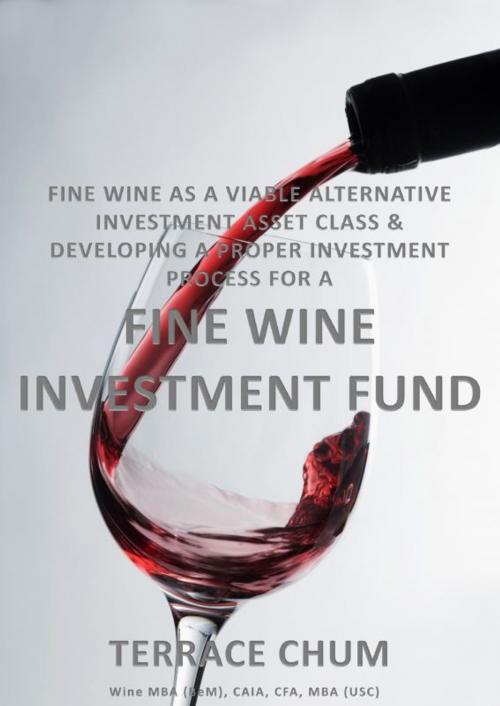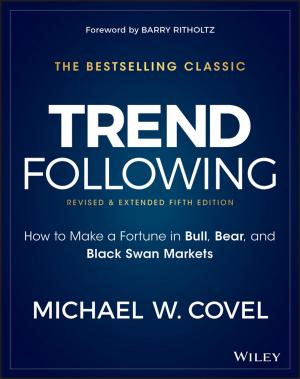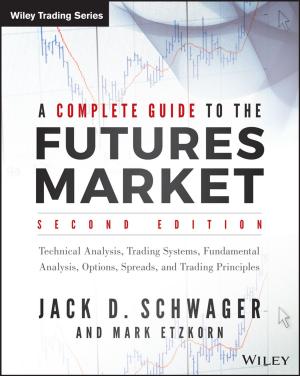Fine Wine as a Viable Alternative Investment Asset Class & Developing a Proper Investment Process for a Fine Wine Investment Fund
Business & Finance, Finance & Investing, Commodities| Author: | Terrace Chum | ISBN: | 9781301401154 |
| Publisher: | Terrace Chum | Publication: | December 17, 2012 |
| Imprint: | Smashwords Edition | Language: | English |
| Author: | Terrace Chum |
| ISBN: | 9781301401154 |
| Publisher: | Terrace Chum |
| Publication: | December 17, 2012 |
| Imprint: | Smashwords Edition |
| Language: | English |
This research project:
1) Investigates whether Fine Wine Investment (FWI) offers diversification benefits to traditional investment assets, i.e. Equities and Bonds? In particular, does FWI offer diversification benefits to investors investing in Chinese Equities?
2) Explores an appropriate methodology in managing a Fine Wine Investment Fund (FWIF).
For 1), statistical data on investment returns from various asset classes are analyzed. The author applies a modified Fama & French Three-Factor Model regression analysis by adding a fourth factor - price momentum - to test whether FWI provides diversification benefits to a portfolio of Chinese equities. This is a positivist and quantitative approach.
For 2), the author develops a methodology in managing a FWIF by primarily studying the investment process of an established wine investment fund - The Wine Investment Fund (TWIF). This is a constructivist and qualitative approach.
The author’s intention is to prove that FWI is a good diversification to investment in Chinese equities. After establishing the case for FWI, the author presents what he thinks is a practical and sustainable investment process in running a FWIF. As will be seen from the findings of this paper, results show that FWI is a good way to diversify and enhance the investment returns of a portfolio of Chinese equities. The author then proceeds to study the investment process of a practicing FWIF and complements this study with his investment background as an equities fund manager to come up with a sound investment process for a FWIF.
Hong Kong has developed itself into a wine hub over the last few years. This, combined with Hong Kong’s status as the prime financial center in Asia, create an opportunity for the development of a wine investment industry in this dynamic city. The author’s motive in writing this thesis is his intention to set up his own FWIF with a sound investment process. This fund, if established, will be managed in Hong Kong. The author thinks that by proving FWI is a viable alternative investment to Chinese equities, he would be able to raise the interest levels of high net worth Chinese individuals and hedge funds towards investment in this emerging asset class.
This research project:
1) Investigates whether Fine Wine Investment (FWI) offers diversification benefits to traditional investment assets, i.e. Equities and Bonds? In particular, does FWI offer diversification benefits to investors investing in Chinese Equities?
2) Explores an appropriate methodology in managing a Fine Wine Investment Fund (FWIF).
For 1), statistical data on investment returns from various asset classes are analyzed. The author applies a modified Fama & French Three-Factor Model regression analysis by adding a fourth factor - price momentum - to test whether FWI provides diversification benefits to a portfolio of Chinese equities. This is a positivist and quantitative approach.
For 2), the author develops a methodology in managing a FWIF by primarily studying the investment process of an established wine investment fund - The Wine Investment Fund (TWIF). This is a constructivist and qualitative approach.
The author’s intention is to prove that FWI is a good diversification to investment in Chinese equities. After establishing the case for FWI, the author presents what he thinks is a practical and sustainable investment process in running a FWIF. As will be seen from the findings of this paper, results show that FWI is a good way to diversify and enhance the investment returns of a portfolio of Chinese equities. The author then proceeds to study the investment process of a practicing FWIF and complements this study with his investment background as an equities fund manager to come up with a sound investment process for a FWIF.
Hong Kong has developed itself into a wine hub over the last few years. This, combined with Hong Kong’s status as the prime financial center in Asia, create an opportunity for the development of a wine investment industry in this dynamic city. The author’s motive in writing this thesis is his intention to set up his own FWIF with a sound investment process. This fund, if established, will be managed in Hong Kong. The author thinks that by proving FWI is a viable alternative investment to Chinese equities, he would be able to raise the interest levels of high net worth Chinese individuals and hedge funds towards investment in this emerging asset class.















